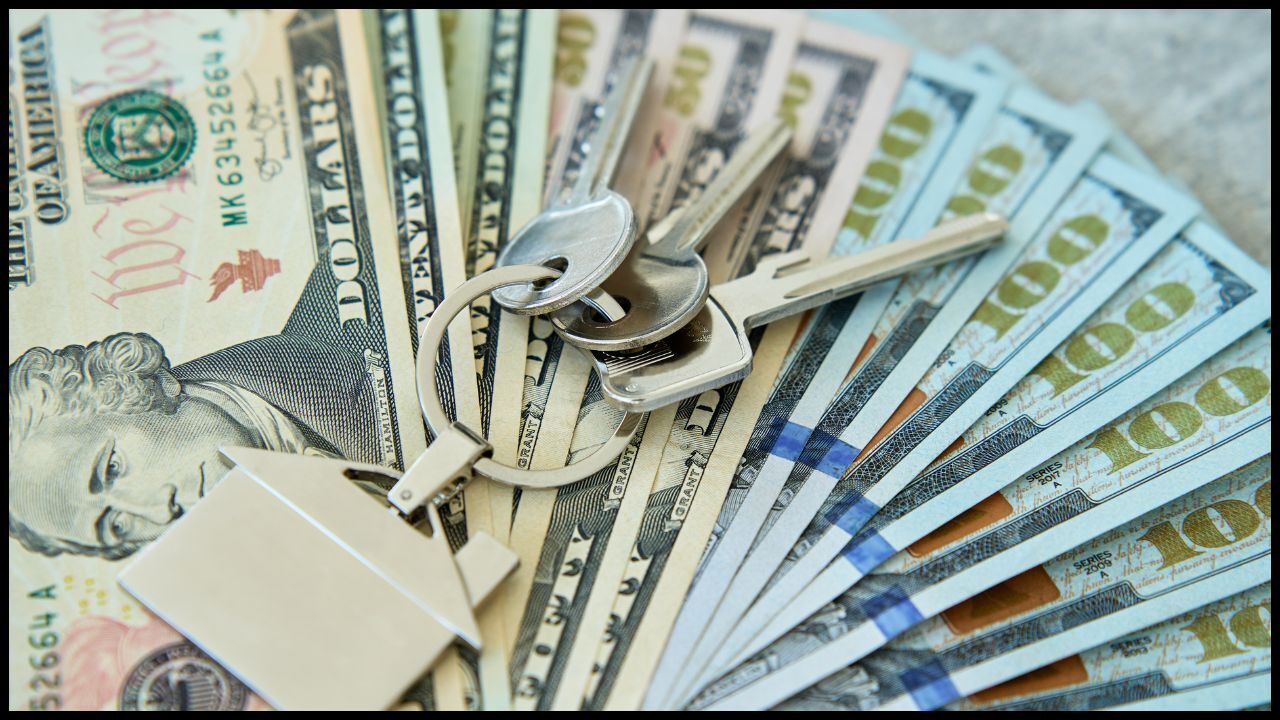 Buying a home is a major milestone, and knowing when you are truly ready can give you confidence throughout the entire process. Many future homebuyers wonder if their finances are strong enough or if they should wait another year. The truth is that homeownership readiness is less about perfection and more about preparation. When several key financial indicators line up, you can move forward with clarity, confidence, and a sense of stability.
Buying a home is a major milestone, and knowing when you are truly ready can give you confidence throughout the entire process. Many future homebuyers wonder if their finances are strong enough or if they should wait another year. The truth is that homeownership readiness is less about perfection and more about preparation. When several key financial indicators line up, you can move forward with clarity, confidence, and a sense of stability.
You Have Steady, Reliable Income
Lenders want to see consistent income, and this is one of the strongest signs you are ready to buy a home. Whether you are salaried, hourly, self-employed, or commission based, the goal is to show a predictable pattern. If your income has been stable for at least two years or if you have a new job offer in a similar field, you are likely to meet this requirement. Steady income helps lenders trust that you can handle a long-term mortgage payment.
You Have Built a Strong Credit Profile
A strong credit profile helps you qualify for better rates, which lowers your long-term costs. Paying bills on time, keeping balances low, and avoiding new debt in the months before applying all help build a healthy score. Even if your credit is not perfect, upward progress is a great sign. Lenders look for responsible credit habits and consistent on-time payments, so strengthening your credit is one of the best ways to prepare for homeownership.
You Have Savings Beyond Your Down Payment
Your down payment is important, but having money left over afterward is just as essential. Savings for closing costs, moving expenses, and an emergency fund help you stay financially secure once you buy a home. A good rule is to have at least one to two months of living expenses set aside after closing. This financial cushion protects you from surprises and gives you peace of mind as a new homeowner.
You Can Comfortably Afford a Monthly Payment
Being ready for homeownership means being able to handle your mortgage payment without stretching your budget. A comfortable payment includes not only the mortgage, but also homeownersí insurance, taxes, utilities, and maintenance. If you can estimate these costs and still have room for savings, entertainment, and daily expenses, that is a strong sign you are financially ready. A comfortable payment leads to long-term stability.
You Have Managed or Reduced Your Debt
You do not need to be debt free to buy a home, but manageable debt makes the process easier. Lower credit card balances, small car payments, and responsible loan management help strengthen your debt-to-income ratio. Lenders look at how much debt you carry compared to your income, so reducing balances or paying off high-interest accounts can make a big difference.
Being financially ready for homeownership is about more than numbers, it is about preparation, habits, and confidence. When your income is steady, your credit is improving, your savings are growing, and your debt is manageable, you are well on your way to owning a home you can enjoy for years to come.
 Buying a home is an exciting step and a powerful wealth building move, but the purchase price is only part of the financial picture. Many buyers focus on the down payment and monthly loan amount, then feel surprised by the ongoing costs that come with owning a home. Understanding these expenses ahead of time helps you buy with confidence and avoid unnecessary financial stress.
Buying a home is an exciting step and a powerful wealth building move, but the purchase price is only part of the financial picture. Many buyers focus on the down payment and monthly loan amount, then feel surprised by the ongoing costs that come with owning a home. Understanding these expenses ahead of time helps you buy with confidence and avoid unnecessary financial stress. A home can look beautiful on the surface, but a past flooding event can create long term challenges that buyers need to understand. If you are considering a property with any history of water intrusion, taking time to learn the risks can protect your safety, your finances and your peace of mind.
A home can look beautiful on the surface, but a past flooding event can create long term challenges that buyers need to understand. If you are considering a property with any history of water intrusion, taking time to learn the risks can protect your safety, your finances and your peace of mind. When buying or selling a home, the foundation is one of the most important yet overlooked elements. It supports the structure, affects durability, and can influence everything from comfort to resale value. As a real estate agent, I often remind clients that understanding the type and condition of a home’s foundation can help them make informed choices and avoid costly surprises later on.
When buying or selling a home, the foundation is one of the most important yet overlooked elements. It supports the structure, affects durability, and can influence everything from comfort to resale value. As a real estate agent, I often remind clients that understanding the type and condition of a home’s foundation can help them make informed choices and avoid costly surprises later on. Home appraisals are a crucial step in the home buying process. It determines the property’s fair market value and helps lenders decide how much money to loan for the purchase. Ideally, the appraisal matches or exceeds the agreed-upon purchase price. However, when the appraisal comes in lower than expected, it can cause stress for both buyers and sellers. Knowing how to handle this situation calmly and strategically is key to keeping the deal on track.
Home appraisals are a crucial step in the home buying process. It determines the property’s fair market value and helps lenders decide how much money to loan for the purchase. Ideally, the appraisal matches or exceeds the agreed-upon purchase price. However, when the appraisal comes in lower than expected, it can cause stress for both buyers and sellers. Knowing how to handle this situation calmly and strategically is key to keeping the deal on track. In today’s competitive real estate market, buyers often find themselves going up against all cash offers. It can be discouraging to see a dream home slip away to someone who can pay outright. However, buyers who use financing still have powerful ways to compete, and win, when they approach the process strategically.
In today’s competitive real estate market, buyers often find themselves going up against all cash offers. It can be discouraging to see a dream home slip away to someone who can pay outright. However, buyers who use financing still have powerful ways to compete, and win, when they approach the process strategically. Buying a home is often the largest financial decision in a personís life, but there are strategies that can help buyers save significant amounts of money. By understanding the process, planning carefully, and leveraging expert advice, buyers can make smarter decisions and reduce costs without sacrificing quality or location.
Buying a home is often the largest financial decision in a personís life, but there are strategies that can help buyers save significant amounts of money. By understanding the process, planning carefully, and leveraging expert advice, buyers can make smarter decisions and reduce costs without sacrificing quality or location. Buying a home is one of the most significant financial and emotional decisions many people will make. While excitement can sometimes cloud judgment, careful planning and informed decision-making can help you purchase a home you truly love and avoid regrets. Understanding what matters most, balancing emotions with logic, and working with trusted professionals are key steps in the process.
Buying a home is one of the most significant financial and emotional decisions many people will make. While excitement can sometimes cloud judgment, careful planning and informed decision-making can help you purchase a home you truly love and avoid regrets. Understanding what matters most, balancing emotions with logic, and working with trusted professionals are key steps in the process. Buying a home is exciting, but the process comes with important legal documents that require careful attention. Your home purchase agreement is one of the most critical papers you will sign, outlining the terms of your offer, contingencies, and obligations as a buyer. Understanding this agreement ensures you protect your interests, avoid surprises, and navigate the transaction with confidence.
Buying a home is exciting, but the process comes with important legal documents that require careful attention. Your home purchase agreement is one of the most critical papers you will sign, outlining the terms of your offer, contingencies, and obligations as a buyer. Understanding this agreement ensures you protect your interests, avoid surprises, and navigate the transaction with confidence. When buying a home, understanding the role of an earnest money deposit can make the difference between a smooth transaction and unnecessary stress. Earnest money shows a seller that you are serious about purchasing their property, and it often plays a key role in negotiating and securing your dream home. Knowing how it works, how much to offer, and what can happen to your deposit is essential for any buyer.
When buying a home, understanding the role of an earnest money deposit can make the difference between a smooth transaction and unnecessary stress. Earnest money shows a seller that you are serious about purchasing their property, and it often plays a key role in negotiating and securing your dream home. Knowing how it works, how much to offer, and what can happen to your deposit is essential for any buyer.